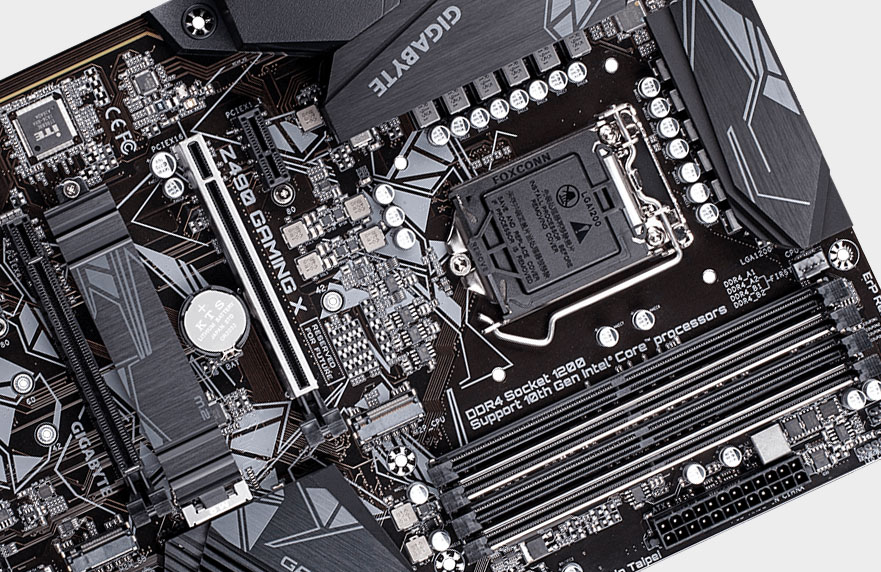Gigabyte joins MSI in confirming Intel's next-gen Rocket Lake CPUs are arriving in March
Rocket Lake is almost cleared for takeoff.

Intel might as well come out and officially announce that it's 11th Gen Core processors based on Rocket Lake are headed to desktops in March, because a couple of its key hardware partners have already let the cat out of the bag. At this point, you can go ahead and circle your calendar.
The first semi-confirmation came from an MSI customer support rep a few days ago, who indicated Rocket Lake would arrive by the end of the first quarter, which basically amounts to the end of March. They later updated the post claiming suggesting that was purely based on circulating rumours.
Customer support reps sometimes get these things wrong, but that does not appear to be the case here. That's because Gigabyte has followed suit in an official press release announcing that its Z490 motherboards will "perfectly support" Intel's next-gen CPUs.
"All Z490 motherboards featuring PCIe 4.0 hardware design can support the 11th Gen. Intel Core processors perfectly by update to the latest F20 BIOS, and provide the extreme bandwidth and performance for PCIe 4.0 graphics cards and SSDs," Gigabyte writes.
Then in the second paragraph, Gigabyte plainly states that "the latest 11th Gen Intel Core processors will be launched on March 2021."
So there you have it—barring a last minute delay, Intel will roll out Rocket Lake to the desktop (designated with an S, as in Rocket Lake-S) in a little over two months from now. The launch will be accompanied by a new 500-series chipset (presumably Z590), but since Rocket Lake will use the same LGA 1200 socket as the 400-series, there will be a bit of backwards compatibility.
According to Intel, Rocket Lake is poised to deliver a double digit gain in IPC (instructions per clock) performance. Even though it is yet another iteration of Intel's 14-nanometer node, it is still a major new architecture, with some goodies in tow. Namely, Rocket Lake will finally introduce PCI Express 4.0 support (up to 20 lanes) to the desktop, a feature that AMD has already embraced with its X570 and B550 platforms for Ryzen.
Keep up to date with the most important stories and the best deals, as picked by the PC Gamer team.

Best CPU for gaming: the top chips from Intel and AMD
Best graphics card: your perfect pixel-pusher awaits
Best SSD for gaming: get into the game ahead of the rest
This will mostly benefit users who want to install a speedy PCIe 4.0 SSD, the latest of which boast transfer speeds of around 7,000MB/s. As for GPUs, The PCIe bus has not been much of a bottleneck for graphics cards .
Speaking of graphics, another feature of Rocket Lake is the pairing of Intel's Xe GPU cores, just as Intel has done on its mobile Tiger Lake lineup. You're still going to want a discrete GPU for serious gaming, but as we have seen in laptops, it is possible to play modern games on Xe graphics. Though you're unlikely to get as many Xe GPU cores on the desktop as you do in mobile trim.
The bigger question, however, is how will Rocket Lake CPUs stack up against AMD's Ryzen 5000 series. That will depend on whether or not Rocket Lake does in fact deliver the kinds of IPC gains Intel is promising. Pricing and availability will also factor into the equation, and hopefully by March, PC hardware shortages will be a thing of the past.
Paul has been playing PC games and raking his knuckles on computer hardware since the Commodore 64. He does not have any tattoos, but thinks it would be cool to get one that reads LOAD"*",8,1. In his off time, he rides motorcycles and wrestles alligators (only one of those is true).


